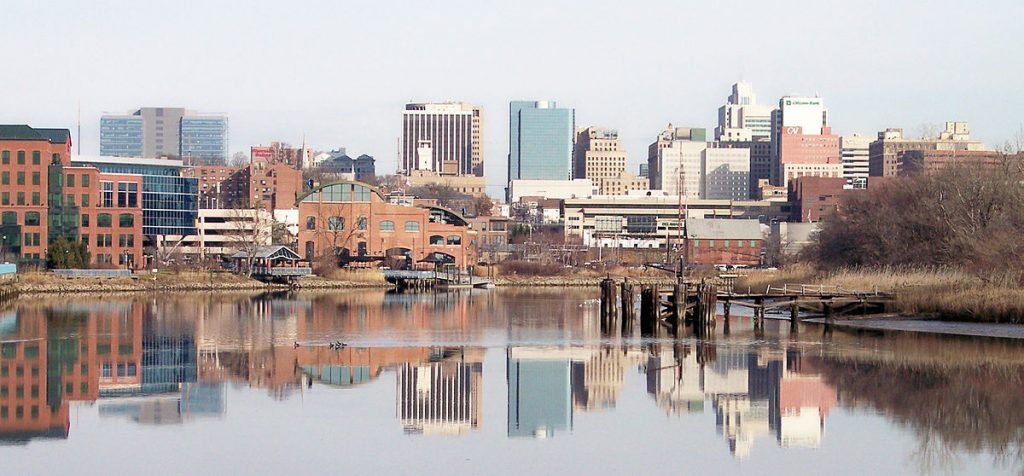Are these banking, tech, or fintech jobs? Does it matter?
25 JUNE, 2019

Are JP Morgan Chase and Capital One tech companies, banks, or fintechs?
While the answer is probably “yes” (or all of the above), the better response might be “Does it matter?”
I have a great deal of sympathy for the challenge that faced John Taylor, director of economic research for the Delaware Prosperity Partnership. Taylor recently completed an in-depth report on fintech in Delaware along with First State Fintech Lab and the University of Delaware’s Biden School of Public Policy & Administration.
Most of the jobs data is federal, with labor-market detail that hasn’t kept pace with the evolving realities of the job market. Here in Delaware, the state has little control over how jobs are defined. The numbers are different if you look at them by occupation than if you look at them by industry.
Back in our April 30 issue, I ran into this challenge when tracking the growth of banking jobs in Delaware (versus some views that the number was shrinking). It was unclear, for example, whether the 2,500 jobs that Chase has added to its Concord Pike technology center are technology or banking jobs. They’re not fintech jobs — at least as defined by the state — because there is no such category, a fact that seemed to startle Chase Market President Tom Horne.
Are Cap One and Chase (and perhaps others) tech companies as some claim? They’re certainly looking for technologists — Taylor’s team checked real-time job posting data for 20 financial-services firms with the most openings and found that 20% were tech-related. With some, the number was closer to 40%.
While a lot were indisputably new jobs, many were likely replacements due to poaching by competitors or people getting hired by Delaware companies outside the financial sector. It will be interesting to see how many of the 500 technology jobs that Barclays is sending to New Jersey later this year will decide to stay here in Delaware, a decision that will likely be made based on their ability to find work here and living costs.
But that takes us back to the question of whether the “fintech” characterization matters. Delaware banks do need more technologists to create products that attract or retain customers (Wilmington Trust/M&T is hiring those kinds of workers, as are others) in a world that requires a much greater digital focus.
We have true fintech startups like Acorns and SoFi whose founders cut their teeth at MBNA and First USA and now want to hire people who helped build those cultures
There’s a lot of great data in the terrific “Delaware in a Fintech Future” report, including:
- Delaware ranked first in the country for per-capital fintech patents assigned from 2009-2018 with 20.6 per 100,000 population (South Dakota ranked second with 4.2), and fifth nationally in terms
of the absolute number (we had 199). - Delaware has the highest concentration of tech workers in the country, according to the 2018 U.S. Bureau of Labor Statistics.
- Financial services firms with at least 250 employees accounted for 91% of statewide financial services employment in 2017, up from 88% in 2007. It will be interesting to see how this number changes in the next report, given the growth in fintech startups covered throughout the rest of the 37-page report.
- None of the 70 independent fintech-related venture capital firms based in the United States list Delaware as their primary place of business or even have an office here.
After reading reports like this, I like to ask the authors or sponsors what their takeaways are.
Delaware Prosperity Partnership President and CEO Kurt Foreman believes that in-depth analysis like the new report helps provide potential prospects accurate, reliable content that can help inform their decision-making.
“As the state’s lead economic development resource, DPP is well positioned to produce in-depth reports on Delaware’s core sectors — in this case, financial services,” Foreman said. “This report and others we plan to do help shine a light on Delaware’s distinctive value proposition. Attracting businesses to consider Delaware is a multifaceted process and research and analysis plays an important role.”
First State Fintech Lab Co-Founder John Collins said he’s most proud of how different groups, with different missions, can come together in a truly collaborative fashion.
“Look, Delaware is a great and special place, but the world is only getting smaller and competition is only growing,” Collins said. “It would be great if we can have a large company who can employ a lot of people, but we should think about how we can grow that locally as much as we look outside. We outline ways to do that in the report and they deserve serious consideration. I think we need to fight for the livability of the state. That means strengthening public education, supporting responsible development and roads that work, and providing access to opportunity for kids whether they live in Greenville, Townsend, or Dagsboro so they are prepared for this new economy.”
Here are my thoughts:
- Determine where the technology-job gap is between not only fintechs but other Delaware industries like health care and manufacturing and then build programs to develop those students.
- Help the state Department of Labor fine-tune its processes to better clarify whether jobs are banking or technology and create a “fintech” category so we can better track job movement.
- Continue to focus on encouraging independent fintech-related venture capital firms to open offices in Delaware. This is one of our goals for Innovation Delaware 2020 — to help make the case for bringing investors to Delaware to see why we’re the First State for Innovation.
Newsletter Sign Up
Stay Up To Date With Delaware